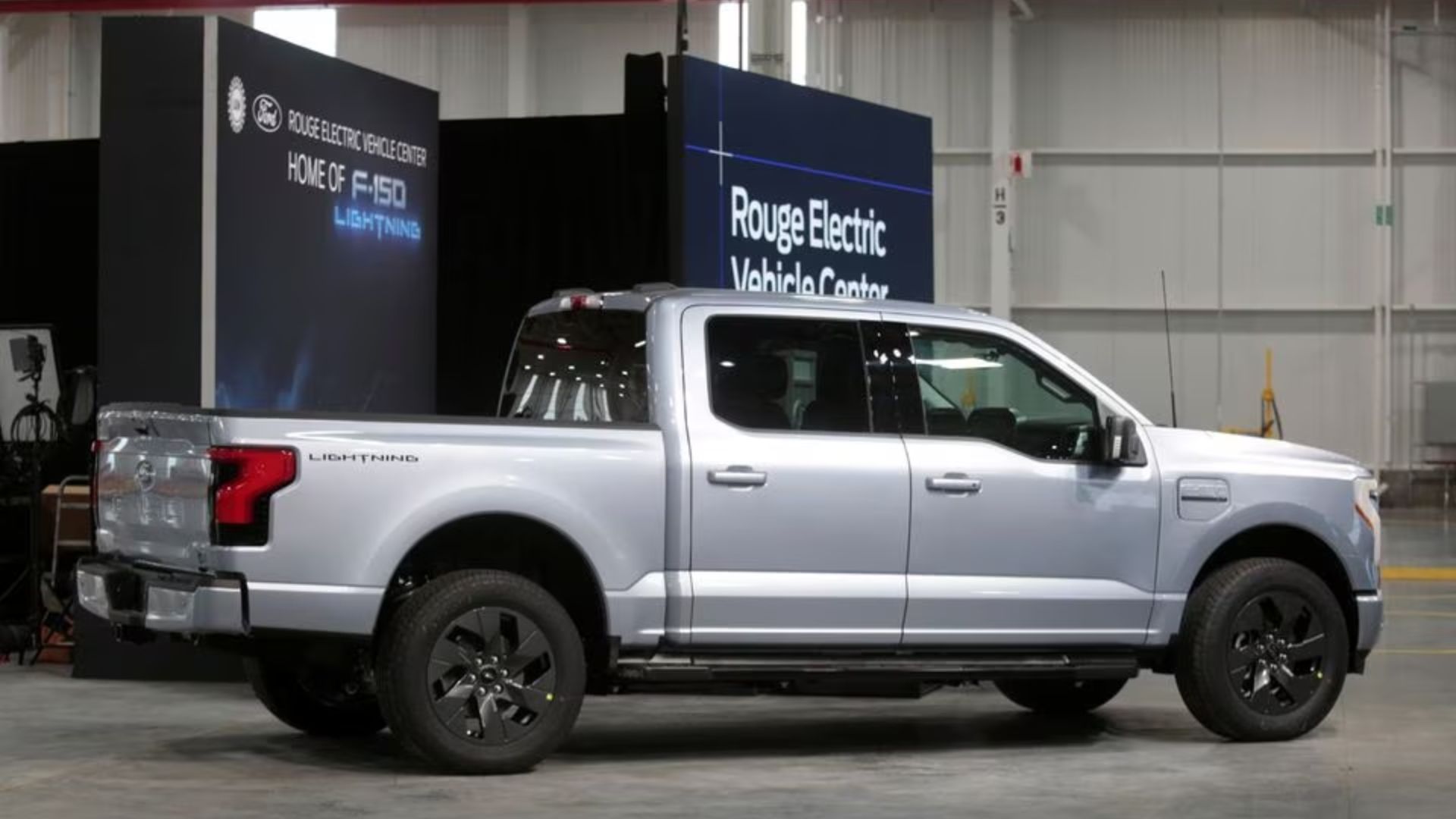(Reuters) – Ford Motor (F.N), opens new tab said on Friday it would reduce production of its F-150 Lightning pickup truck, as demand for electric vehicles (EVs) has been lower than expected.
The No. 2 U.S. automaker said it would cut production at its Michigan Rouge Electric Vehicle Center to one shift starting April 1. In October, the automaker said it would temporarily cut one of three shifts at the Michigan plant that builds the electric F-150 Lightning pickup truck.
“We are taking advantage of our manufacturing flexibility to offer customers choices while balancing our growth and profitability,” said Ford CEO Jim Farley in a statement.
The announcement is the latest sign of slowing demand for EV trucks. General Motors (GM.N), opens new tab in October postponed the opening of a $4 billion electric truck plant in Michigan for a year.
Ford told suppliers in December that it planned to produce about 1,600 F-150 Lightning EV trucks per week starting in January, roughly half of the 3,200 it previously had planned.
Ford sold 24,165 F-150 Lightning trucks last year in the United States, up 55% over 2022, out of about 750,000 total F-150 U.S. sales. Ford shares were up 1% in mid-day Friday trading.
Ford in August had said the plant that builds F-150 Lightning could hit a 150,000-vehicle annualized production rate by October after saying in 2022 it would double EV truck production.
The Dearborn automaker said Friday it would add a third crew and create nearly 900 jobs at its Michigan assembly plant to increase production of gas-powered Bronco SUVs and Ranger pickups.
The F-150 Lightning production cut comes at a time when Detroit automakers are protesting that the Biden Administration is going too far with proposals to use emissions rules that would result in 67% of all new vehicles in 2032 being EVs. On Friday, the Environmental Protection Agency (EPA) submitted its proposal to finalize vehicle requirements to the White House for review.
The Republican-led U.S. House in December voted to bar the EPA from moving forward with the planned vehicle emissions regulations, drawing a veto threat from the White House.
Former President Donald Trump, who is seeking to return to the White House, has vowed to reverse the Biden administration’s EV rules, while the White House has touted automakers significant EV and battery production investments along with government funding of new EV charging.
Ford said Friday the move impacts 1,400 workers at the plant. Roughly 700 will transfer to its Michigan Assembly Plant and others will be placed in roles at the Rouge Complex or other facilities in Michigan, or take advantage of a special retirement program.
The automaker sees continued growth in global EV sales in 2024, though expects it to be “less than anticipated.”
Ford said a few dozen employees could be impacted at component plants supporting F-150 Lightning production.
Ford lost an estimated $36,000 on each of the 36,000 EVs it delivered to dealers in the third quarter, the company said in October, after announcing earlier it would slow the ramp-up of money-losing EVs, shifting investment to Ford’s commercial vehicle unit and citing plans to quadruple sales of gas-electric hybrids over the next five years.
Legacy car manufacturers have sharpened their focus towards hybrid models over the past year as buyers snapped up more of those in place of all-electric models.
Reporting by David Shepardson in Washington and Nathan Gomes in Bengaluru; Editing by Shilpi Majumdar, Franklin Paul and Mark Potter











